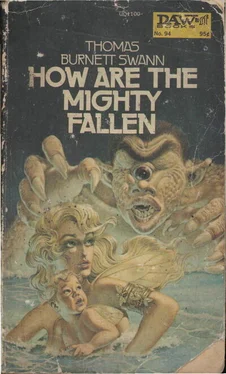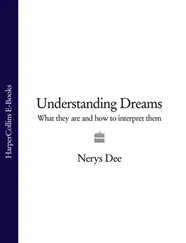Thomas Swann - How are the Mighty fallen
Здесь есть возможность читать онлайн «Thomas Swann - How are the Mighty fallen» весь текст электронной книги совершенно бесплатно (целиком полную версию без сокращений). В некоторых случаях можно слушать аудио, скачать через торрент в формате fb2 и присутствует краткое содержание. Жанр: Фэнтези, на английском языке. Описание произведения, (предисловие) а так же отзывы посетителей доступны на портале библиотеки ЛибКат.
- Название:How are the Mighty fallen
- Автор:
- Жанр:
- Год:неизвестен
- ISBN:нет данных
- Рейтинг книги:4 / 5. Голосов: 1
-
Избранное:Добавить в избранное
- Отзывы:
-
Ваша оценка:
- 80
- 1
- 2
- 3
- 4
- 5
How are the Mighty fallen: краткое содержание, описание и аннотация
Предлагаем к чтению аннотацию, описание, краткое содержание или предисловие (зависит от того, что написал сам автор книги «How are the Mighty fallen»). Если вы не нашли необходимую информацию о книге — напишите в комментариях, мы постараемся отыскать её.
How are the Mighty fallen — читать онлайн бесплатно полную книгу (весь текст) целиком
Ниже представлен текст книги, разбитый по страницам. Система сохранения места последней прочитанной страницы, позволяет с удобством читать онлайн бесплатно книгу «How are the Mighty fallen», без необходимости каждый раз заново искать на чём Вы остановились. Поставьте закладку, и сможете в любой момент перейти на страницу, на которой закончили чтение.
Интервал:
Закладка:
“It cannot be told,” said Jonathan. “Except that it isn’t a sin to those who so love. It came into the world, I think, when the Lady first walked among men. ‘Let there be love, she said. She did not say, ’Let there be love only between a man and a maid or a son and his father.‘”
“Ah, the Goddess. I have served only Yahweh, but he has forsaken me. Perhaps I have judged her ill, and those are wise who have served her as well as a god.”
“David and I, my father.”
“Perhaps David will come back to us.
“You would call him back?” cried Jonathan. “You would forgive him, Father? He was never disloyal to you.”
“It is almost light,” said Rizpah. “And David, I think, will indeed be with those who march against us tomorrow.”
– Gilboa, though often called a mount, was a ridge of limestone hills instead of a single peak; hills like those where Saul and his army, for twenty years, had outfought the Philistines, leaping from crag to crag like wild ibexes, laughing at the heavy armor which encumbered the enemy and the stones which splintered the spokes in their chariot wheels. Now, for the first time, the five great Philistine cities had met as one nation and assembled the largest army ever to march against Israel, with numberless chariots hammered of bronze and iron and armor no sword could pierce. Saul and Jonathan silently surveyed the tents which empurpled the plain like deadly mushrooms; turned and faced each other; and embraced as father and son for the first time in many years.
“I know why David loves you,” Saul said, and the words were like hemlock poured into Rizpah’s ear; she was no longer first. “You are one of those golden angels which Yahweh sent to Abraham to tell him that Sarah at ninety would bear him another child. You fight for me and Israel. And yet you would rather build gardens with David. Or stand on the shores of the Great Green Sea and count the dolphins. And who can say you are wrong? I only know that I have greatly wronged you, whom I love the best.” Then in turn he embraced his younger sons, Ahinidab and Machishua, beardless youths who had never fought a war; strong with a plow, clumsy with a spear. But, being ignorant of Philistines, they were eager to fight. Rizpah, momentarily ignored (how often ignored!), stood behind them when Ahinoam, their mother, came from her tent to embrace them and cling lovingly to Jonathan. Ahinoam did not know of Saul’s visit to the Witch of Endor, but she turned to Saul and said:
“The Philistines have surely learned our ways by now. I fear for you, my lord. I think you should scout the hills behind you.”
It was such a remark as Rizpah would never have made to Saul. A woman advising a king before a battle!
Saul frowned and said, “I have set men to guard the principal passes into the hills. Only ignorant shepherds know the bypaths.”
“Yahweh go with you then.‘ She did not mention the Lady, nor did she remind him that he had failed to sacrifice to any god; that he had been estranged from Yahweh since the death of Samuel.
He looked at her with sudden tenderness. “And the Lady as well?”
“The Lady as well. Even Yahweh acknowledges her power. Or why do his priests so often revile her?”
“You can never forget her, can you? Nor the island of the sunken palaces.”
He kissed her tenderly on the mouth. He accepts defeat, thought Rizpah. Otherwise, he would not debase me before his discarded queen.
“If only you had been less beautiful! If only a little gray had sprinkled your hair! It is not easy to grow old in the company of a goddess. Why, to look at you makes me wish I were still that bold young man beside the well in Endor!“ Then, remembering Rizpah and drawing her to his side, he said, ”Come, my sons. It is time to march. Rizpah will send us on our way.“
Thus he returned to being a king and a general of twenty years, except that now he was old and tired and would rather return to his farm than lead an outnumbered army against a foe he could no longer hate. He is not mad, thought Rizpah. He will not forget his commands or sulk in his tent; he is resigned. David is not with him. All that I wanted I won, but at what a cost! I wanted Saul and took him from Ahinoam. I envied David’s power and drove him into flight. Yet here today, I must confront myself and my chosen fate: fruition or drought; the delectable figs of Sharon or the wizened apples of the Dead Sea Valley.
The day she had first met Saul, when he had come to her, an aging harlot in newly conquered Ammon, she had stared at him, straight and kingly then but starting to gray, and thought: It is not a queen he needs. He is tired of Ahinoam’s beauty, her mind, her pride. It is comfort he needs, a hood instead of a crown; gray robes instead of purple; and I will command the highest arts of my trade into winning his love.
“My lord Saul is weary,” she had said. “Let me anoint his feet with the balm of Gilead…” And she had loved him to her triumph and now, at the last, to her despair.
And what of David? At first she had liked the boy. He won victories for Israel. He was quick, kind, and intelligent. He sang for Saul and treated her like a queen instead of a concubine. But then the maidens sang at the wells, “Saul has slain his thousands. David his ten thousands.” She felt the scorpion sting of jealousy. Saul was her lover, Saul was her lord. Surpassed by a shepherd from little Bethlehem? Why, the boy would demand the throne!
“David and Jonathan are building a garden,” she had said at a carefully chosen time, when Saul was taking his ease from the midday heat in an upper chamber of his palace. She knelt beside his couch, fanning him with a fan of ivory and peacock feathers.
“A garden?” asked Saul with interest, no doubt remembering his youth. “A good thing indeed. We have need of fruits and vegetables for the palace.”
“Indeed. And their friendship is beautiful to watch as they work together. David, I think, will always serve you because of his love for Jonathan. Why, even now I have seen them pause in their work and whisper together and kiss on the lips like a man and a maid, though which was the maid I cannot say-they are both such valiant warriors-and crown each other with flowers.”
Thus had she planted the oleander seeds of suspicion: forbidden love and treason against the throne. Thus had she separated Jonathan from his father and rid the court of David.
But now she must send her beloved into battle, a tired old man, white of beard like Abraham, gaunt and guilty like Jonah fleeing the Lord, more dear to her than in his lordly prime. He had pitched his camp in the lower hills of Gilboa, above and to the side of the plain where the armies would meet. He had left a sufficient guard-except in the case of total rout-and Rizpah was not afraid for her life. She did not want to live if Saul should die, but she wanted desperately for him to live and return to his farm with her for their final years.
She watched the Israelites march from the camp in their tattered, deadly ranks-this man armored, that man clad in a goatskin, this man carrying a spear, that man a staff. Foot soldiers, climbers, leapers, archers, stingers… the roughest, most ill-equipped army between Egypt and Assyria, the only large army without chariots, and till now the most feared. Its departure seemed to Rizpah like the receding of a great tide (though she had never seen the sea), and she earnestly prayed to Yahweh and the Ammonite Baal for its return.
Ahinoam took her hand. “Let us go forth to watch our lord smite the foe.”
To watch your precious Jonathan, Rizpah thought. What do you care for Saul, you brazen witch! But she did not remove the unwelcome hand. She envied Ahinoam: her beauty, her grace, the power she held over Saul, and because to the country Ahinoam remained the Queen while she, Rizpah, was a bedraggled whore who had stolen the Queen’s bed. But it was well to maintain a pretense of friendliness, since Saul in his way still loved his queen. She pressed Ahinoam’s hand. The small perfect fingers as always made her feel plain and clumsy and old, but she would not have traded Saul for Ahinoam’s beauty, no, not even for Jonathan as a son.
Читать дальшеИнтервал:
Закладка:
Похожие книги на «How are the Mighty fallen»
Представляем Вашему вниманию похожие книги на «How are the Mighty fallen» списком для выбора. Мы отобрали схожую по названию и смыслу литературу в надежде предоставить читателям больше вариантов отыскать новые, интересные, ещё непрочитанные произведения.
Обсуждение, отзывы о книге «How are the Mighty fallen» и просто собственные мнения читателей. Оставьте ваши комментарии, напишите, что Вы думаете о произведении, его смысле или главных героях. Укажите что конкретно понравилось, а что нет, и почему Вы так считаете.












